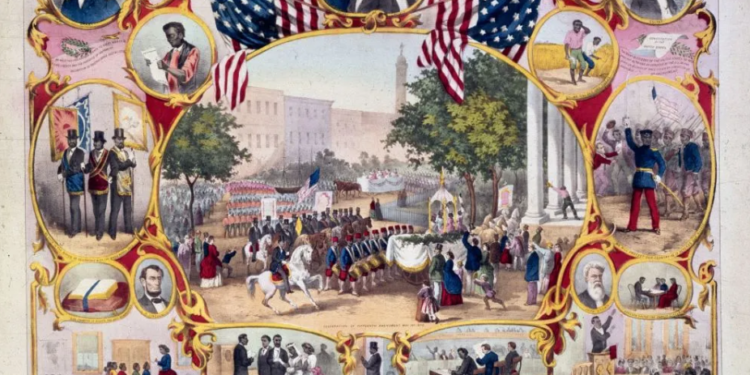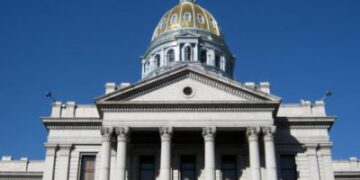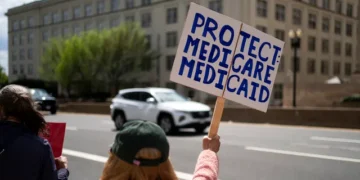Nov 20, 2024 Story by: Editor
Following Kamala Harris’ loss in the 2024 elections and the Republican Party’s significant congressional victories, many Democrats are grappling with frustration, anger, and fear. Donald Trump’s return to the presidency has reignited concerns, particularly over his ability to secure a conservative Supreme Court for years to come. Moreover, his proposed policies—such as revoking broadcast licenses of critical media, penalizing states and politicians that opposed him, and his infamous declaration of intending to act as “a dictator on day one”—have sparked widespread alarm.
While troubling, such threats are not unprecedented. They echo actions taken by conservatives after the Civil War. During Reconstruction, ex-Confederates employed claims of election fraud, launched voter suppression campaigns, and even destroyed ballots to undermine political opposition. However, their most devastating tactic in 1868 was exploiting racial prejudices, a force that continues to influence American politics today.
The election of 1868 remains the most violent in U.S. history. Following the passage of the Reconstruction Acts and the 14th Amendment, Black Americans gained the right to vote. However, suffrage rights did not shield them from threats of violence. Despite federal troops in some Southern areas, regions like St. Tammany Parish, Louisiana, lacked sufficient protection.
In that election, conservatives supported Horatio Seymour against Ulysses S. Grant, basing their campaign on the promise to disenfranchise Black voters. Their rhetoric incited violence, with the Ku Klux Klan conducting widespread attacks across the South. By Election Day, Klan violence had resulted in at least 2,000 deaths in Louisiana alone, with many more victims across the region. The Klan burned homes, assassinated Black officials, and destroyed voter registries, using terror to suppress Black voters. Contemporary estimates suggest tens of thousands of Black women, men, and children were victims of this violence.
Despite these efforts, Black Americans remained resolute. They courageously turned out to vote in 1868 and in the years that followed, defying attempts to silence them.
A testimony from Mumford McCoy, a former enslaved blacksmith from St. Tammany Parish, illustrates this resilience. Speaking before a congressional investigation in New Orleans on June 10, 1869, McCoy recounted the horrors in his community: the murder of Black coroner John Kemp, attacks on a local preacher’s family, and the burning of a church McCoy had helped build. When asked if these events had diminished his spirit, McCoy firmly responded, “No sir, I have not lost any at all. It has only given me better encouragement and ambition.”
Black Americans across the South mirrored McCoy’s determination. Following the 15th Amendment’s ratification in 1870, newly formed political organizations and militias helped Black voters reclaim their rights. In Shreveport, Louisiana, for instance, Black citizens overcame previous voter suppression to march to the polls in large numbers during the 1870 congressional election. Their efforts secured Republican victories in areas once dominated by conservative violence.
This defiance continued in subsequent years. In states like Georgia, Mississippi, and South Carolina, Black voters made significant political gains, even in regions marked by brutal violence. By 1870, Louisiana, a state marred by intimidation in 1868, saw all its congressional districts flip to Republican control, thanks to the persistence of Black voters.
Much like the civil rights activists of the 20th century, Black Americans during Reconstruction formed a united front against systemic racism and political violence. They strategized, resisted disenfranchisement, and refused to be demoralized by setbacks. Their determination to engage politically, even after enduring unimaginable violence, was rooted in the understanding that retreating would signal a loss of freedom in the post-emancipation South.
Over time, as white allies retreated from Reconstruction, ex-Confederates regained power, leading to the rise of Jim Crow laws. Yet, Black Americans persisted through grassroots movements, labor organizations like the Brotherhood of Sleeping Car Porters, and sheer resilience. Despite the odds, they maintained faith in their right to participate in democracy.
Today, Democrats disheartened by election losses can draw inspiration from these early Black voters. Rather than succumb to despair, they should channel their disappointment into determination. As Mumford McCoy demonstrated, adversity can fuel “better encouragement and ambition.” In the face of political challenges, engagement and resilience remain crucial. Source: TIME
















